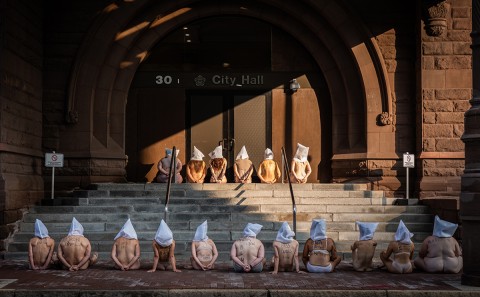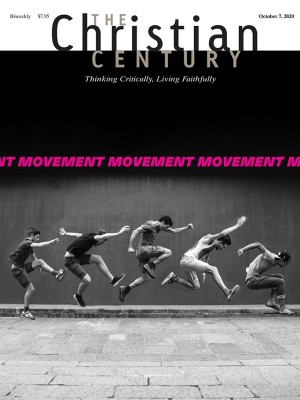Why didn’t the police show any empathy for Daniel Prude?
Jesus, too, encountered a naked man living with mental torment. He responded quite differently.

A wave of empathy research has emerged in recent years, much of it questioning the link between empathy and altruism. More than a few social scientists wonder if empathy does the good many of us think it does. Author Paul Bloom finds the emotion to be “parochial [and] narrow-minded.” Psychologist Jamil Zaki thinks we steer too much of our empathic imagination toward those who act or think like we do. Literature professor Alisha Gaines is concerned about the exploitative consequences of racial empathy. Columnist David Brooks calls empathy a “sideshow” that doesn’t really motivate us to take moral action.
I want to put in a good word for empathy. The capacity to make a deep connection with someone else’s feelings or frame of reference is one of the ways we heal a tattered world. Not only does it open the door to solidarity with another life, it enlarges our own in the process. To live without empathy is to live within the narrow confines of our own little worlds. It’s a decision to keep the experiences and situations of others distant from our own.
Read our latest issue or browse back issues.
Psychologists may debate whether empathy is a hardwired personality trait or a skill we build over time. I simply want to know why it shouldn’t be a way of life for all of us. To participate in the emotions of another human being is one of the ways we express love.
When I first saw the video of Rochester, New York, police officers standing over the handcuffed body of Daniel Prude, I almost shouted at the scene unfolding on my screen: Doesn’t it even occur to you guys to wrap this cold and naked man in a warm blanket? What are you thinking?! Yes, Prude was agitated and shouting in the midst of a serious mental health episode, exacerbated by PCP in his system. But he was also handcuffed face down on a wet street with snow falling and temperatures hovering around the freezing mark. And instead of running for a blanket and calling in a mobile mental health unit, police forcefully pushed the side of Prude’s head into the pavement and put a knee on his torso until he became unresponsive.
Daniel Prude lived with mental torment and self-injuring tendencies, not unlike the Gerasene demoniac in Mark 5. (Prude was bleeding from glass he had broken on himself that night.) The naked figure Jesus encountered living among the tombs also suffered a terrifying madness, howled in fright, and regularly inflicted injury upon himself. But the empathetic impulse of Jesus is what sharply distinguishes the outcome of these two stories. When townspeople appeared, they found the demoniac fully clothed and sane. Jesus told him to tell whoever he met what mercy the Lord had shown him. We get the impression, from the one who elsewhere said, “I was naked and you clothed me,” that empathy inspired his mercy.
Dacher Keltner, professor of psychology at UC Berkeley, has studied the relationship between social power and empathy deficit. “Once people assume positions of power,” says Keltner, “they’re likely to act more impulsively and aggressively, and they have a harder time seeing the world from other people’s points of view.” People with power don’t lack the capacity for empathy. They just typically insulate themselves from people they deem inconvenient. All of which is to say: locating a blanket for a naked man in distress is something you have to want to do.
A version of this article appears in the print edition under the title “Blanket empathy.”






